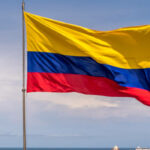The Philippines needs to become more proactive in fighting financial crime. That’s the message the Financial Action Task Force (FATF) sent out last Friday when it added the country to its grey list, the ledger that sits right next to the agency’s blacklist. The Philippines join two European countries, Malta and Romania, which were added earlier in the week.
The Philippines’ Uncertain Money Management
According to the FATF, it put the Philippines on the list because, while the country has been implementing measures to combat financial crime, it needs to do more. The Philippines is said to be working with the FATF and the Asia/Pacific Group on Money Laundering, an organization developed to thwart financial criminal activity in the region, but the agency points out that the country hasn’t been able to adhere to the deadlines that were put in place. As a result, the FATF is going to be monitoring the country more closely to help motivate it to work faster and expects the Philippines to be more diligent with its anti-money laundering (AML) and combatting the financing of terrorism (CFT) measures.
The FATF added that the Philippines are “demonstrating that supervisors are using AML/CFT controls to mitigate risks associated with casino junkets,” but that it needs to do more. It explained in a press release that not all of the issues revolve around casino operations and that there were seven other areas that needed to be cleaned up, as well. The decision to add the Philippines to the grey list comes as the country has been repeatedly hit by COVID-19 outbreaks that have hindered economic recovery efforts.
Not a First for the Philippines
This isn’t the first time that the Philippines and the FATF haven’t seen eye to eye. The country was previously on the agency’s blacklist from 2000-2005, but made strides to improve its image. The FATF recognizes the efforts the country is making to continue along the same path, adding that it has “made progress on a number of… recommended actions to improve technical compliance and effectiveness, including by addressing technical deficiencies on targeted financial sanctions.” As a result of being on the list, other countries are expected to increase their reporting and scrutiny when dealing with companies in the Philippines.
The Philippines has been so determined to avoid landing in the crosshairs of the FATF that it took specific measures this past January to avoid any issues. The government amended its Anti-Money Laundering Act and included objectives that would help it stay off the grey list, but those objectives have apparently not been fulfilled in a timely manner. Now, it will need to work more diligently to clear its name. In the meantime, it will share the same space as Albania, Panama, Yemen and others. It will also be part of the same list to which Malta and Romania were just added last week.




